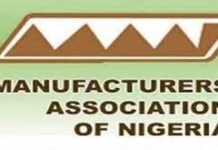In an effort to reduce the cost of running the government, the Tinubu administration has placed a three-month embargo on foreign trips for ministers and other government officials. This decision follows criticism from Nigerians directed at the Accountant-General of the Federation for organizing a retreat in London for state commissioners of finance.
President’s decision to halt foreign trips by government officials is a welcome development. According to the President the foreign trips embargo for government appointees would save the country over N5bn. This is as he urged Nigerians to patronise made-in-Nigeria products and services to sustain the recent gains of the Naira in the foreign exchange market.
I also commend the President’s decision to sell three presidential jets due to the high maintenance costs. There’s still more to be done to plug leaks in government spending. Additionally, the government should stop allocating money for constituency projects directly to legislators. Instead, legislators should submit proposals to the government for project approval. The constituency projects brouhaha predates President Tinubu. It started during Olusegun Obasanjo’s era, aiming to appease legislators, birthing the constituency projects. It is also alleged that some legislators use companies as fronts to secure contracts. Constituency projects are unconstitutional, a ruse, and a conduit to shortchange Nigerians.
On a positive note, the Minister of Works, though often described as a square peg in a round hole, is performing admirably. He has even requested contractors to redesign projects to save costs.
It’s a good sign that the federal government will patronize Nigerian meter producers, which will increase local content in power projects.
I read about how the Minister of the Federal Capital Territory reprimanded contractors involved in unauthorized contract variations. Many construction companies in Nigeria operate with impunity. They crush our rocks, fell our trees, and steal our mineral resources such as lithium, gypsum, gold, kaolin, and the like. President Tinubu should strengthen our weakened institutions and authorize an investigation into all contracts that were awarded, paid for, and either have begun or have been completed.
In the office of the Chief of Staff, the proposed allocation for 2024 represents a staggering 4000% increase from 2023, which is outrageous. In Saudi Arabia, the ultra-conservative leadership is using proceeds to uplift the living standards of its citizens. Saudi Arabia has earmarked a location just 40 minutes’ drive from Riyadh to build the world’s first theme park dedicated to the Japanese manga franchise, aiming to attract tourism. Meanwhile, we are grappling with issues such as hunger, banditry, and kidnapping for ransom.
In Nigeria, from the President to national assembly members down to local government councillors, they collectively make up less than 1% of the population, yet they receive a significant portion of the national resources, leaving the majority of citizens wallowing in abject poverty.
Our leaders are telling us to brace ourselves and adjust to these hard times, yet they fail to cut down on their motorcades, frequent foreign trips, allowances, cars, and the like. Our leaders should lead by example and demonstrate to Nigerians that they are genuinely with us during these difficult times.
Our nation’s beleaguered currency is facing a barrage of attacks from all angles. Fifth columnists are stockpiling dollars at home, undermining the government’s efforts to revamp the economy.
Another move by the President to cut government running costs is his decision to implement the Oronsaye Report, which recommends merging some government agencies with overlapping mandates. However, the report needs to be updated, as new ministries, departments, and agencies have been created since it was written. Some government departments and agencies were created purposefully to compensate kin and political associates. These agencies also have overlapping mandates with other existing ones. Merging the EFCC and ICPC is a possibility worth considering.
One area requiring government attention is the prevalence of medical tourism and Nigerians pursuing studies abroad. Upgrading hospitals and schools with world-class equipment to meet international standards could curb medical tourism and the seeking of foreign degrees. This, in turn, could save Nigeria billions of dollars.

























